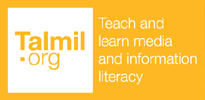

Kosovo
-

RSF World Press Freedom Index 2021 (position)
78of 180
-

RSF World Press Freedom Index 2021 (score)
30.32
-

IREX vibrant barometer (score)
24of 40
Media landscape
The development of the media sector in Kosovo is largely conditioned by the unstable and unpredictable political situation, as well as ethnic tensions. Although there are commendable efforts of independent media to investigate topics of public interest, such as corruption (BIRN Kosovo) and disinformation (Krypometri), the mainstream media reports are mostly driven not by facts but by politicians or institutions making single statements or declarations. (1). The media market is predominantly privately owned and the ownership patterns are transparent, although de facto ownership often differs from that officially stated. In that light, there is neither transparency nor a fair distribution of the sources of financing among the media outlets (2). The RTK public service provides programmes in Albanian and Serbian: it remains popular, but trust in it has declined in the last few years due to the political influence of government and party politics (3).
Journalists
Journalists in Kosovo are exposed to various pressures, primarily political and financial. Cases of sending threats and intimidation via social networks are recorded more and more often (4), but „older“ forms of pressure such as physical and verbal attacks, as well as pressure to censorship, are still dominant (5). During 2020, the Association of Journalists of Kosovo recorded 24 cases of attacks on journalists (6).
Audience and media literacy
Media literacy in Kosovo is underdeveloped, partly due to lack of coordination between the education system and the non-governmental sector, which has been involved in MIL education for years (3).The opinion poll results show that Kosovo citizens are not only frequent users of the media, but they place a lot of trust in them, too. The majority of citizens in Kosovo believe that the media serves democracy and the public interest very well (7).
Medias outlets

National media
Krypometer
Krypometer is a project developed within the Kallxo website, dedicated to fact-checking analyzes. Its mission is to hold media outlets accountable. Krypometer is a verified member of the International Fact-Checking Network (IFCN).
Radio KIM
Radio KIM (radio, TV and website) offers information regarding Kosovo in Serbian language, with a special focus on the topic of importance for Serbian minority in Kosovo. This outlet offers articles and multimedia content on various political, social, economic, cultural and sports topics, and is a member of the Kosovo Media Association.

Regional media
Agence France Presse (AFP)
Since 2017, AFP has been developing a fact checking service, which reviews news casted in the media and social networks. In the Western Balkans, AFP currently fact checks news in Serbia, Montenegro and Bosnia-Herzegovina, as well as on Facebook and other social media. In 2021, the press agency launched a worldwide public campaign on media literacy and basic fact checking tools.






